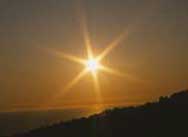return to Home Page
or move on to Goddess Persephoneia, next chronologically,
or us Her Cyclopedia Index
Percha, Shining-One.
P6X1,
Alternate meanings: Elf-Woman.
[to Whom the twenty-sixth day of June, day 177, is dedicated]

Geography/Culture: Germanic. Gazeteer 3a.
Linguistic Note: Old German Perahta, Berahta: name of a female deity from beraht, 'bright'. Germanic -- Austria, Switzerland and Alsace. {I've wondered if the word Pechts, an alternate rendering of Picts, has any etymological relatedness to Percha, see Bean-Sidhe.}
Description: Benevolent white Goddess of fate, and of fertility in domestic cattle and sheep; Custodian of the dead; Matron of spinning; She Who is manifest in mist; Demander of cleanliness and industry in others; She Who is particularly concerned with the condition of barns and women's spinning; She Who will put a plague on cattle or do bodily harm to the lazy; She Who is fond of little children often stealing into a room to rock the cradle if a child is left alone; She Who is sometimes seen traveling with a train of children following Her like a flock of chickens; some say She Who rides the storm followed by a howling pack like the "Wild Huntsman"; sometimes She is conceived as the benevolent White Lady; sometimes conceived as a savage Witch Who carries off and eats Her victims; sometimes She is conceived as a Hobgoblin frightening naughty children.
To Whom Sacred: pancakes; sheep; plowshare; spinning; treadle; dancing; the colour white; mist.
Iconography: She has been described as: A ragged and disheveled Old Woman with stringy hair, bright beady eyes, a long hooked nose and one foot large and flat from working the treadle.
Festival: January 6 -- Perchtennacht, 12th night (nowadays meaning 12th night after Christmas, but originally 12th night after the winter solstice), involving activities encouraging the rebirth of the new year. On this night everyone must eat pancakes for supper (in some places herrings and dumplings). The remains must be left on the table for Her or She will cut open people's stomachs, remove the food, then sew them up again using a plowshare threaded with chains. Also on this day, to drive out evil spirits and insure fertility of fields, certain people, perhaps originally Her followers, called perchten go about the districts dancing, especially jumping up and down in farmer's fields. These rites are observed on shrove tuesday in some places.
Titles/Variants, etc:
- She seems similar to Italian Befana, {Buffoonish-Hag}.
- Apparently a variant: Berchta, Shining, but see below.
- Identified by some with Scandinavian Erda, Whose name is a variant of, and Who is linked with Ertha, Earth.
- Identified with Hulda, The-Benignant, as the leader of a furious host.
- Variant: Percht.
- Variant: Perchta.
- Variant: Precht.
Source: D,L.NADFN/47; Funk & Wagnall SDFML 137, 346, 856
Berchta, Shining.
B6rXT1,
Alternate meanings: Bright-One, {Elf-Woman}.
Geography/Culture: Germanic. [?\gds\gazeteer\gazeteer.3a]. Some say south Germany, some say north, {so perhaps both}.
Description: Originally a benevolent Fairy (i.e. fate Goddess).
In Christian times She came to be regarded as a Witch.
Titles/Variants, etc:
- Counterpart: Holda, Who is linked with, and perhaps a varianat of Hulda, The-Benignant.
- Variant: Berkta.
- English variant: Bertha.
- Variant: Brechta.
- Fore-name: Frau-Berchta.
- Perhaps variant: Percha.
worked on: June 1990; August 1991; June 1995.
Return to the top of this document.
